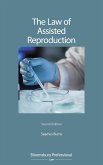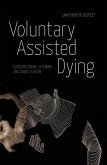Written by a leading thinker in the field, this book, part of the" Biomedical Law and Ethics Library" series, provides readers with an in depth critique of the arguments for and against legislation in the area of assisted dying. Examining the direct conflict between the state; its role in protecting necessary third party involvement and safeguarding the moral tone of society, with the 'right to die' and highly personal choices of individuals concerning life and death, the author addresses its role in regulating practices. A must read, it explores the development of law; tracing its development from prohibition to the "laissez faire" attitude adopted in some countries in the twenty-first century.
Assisted Dying explores the law relating to euthanasia and assisted suicide, tracing its development from prohibition through to the laissez faire attitude adopted in a number of countries in the 21st Century. This book provides an in-depth critique of the arguments surrounding legislative control of such practices and particularly looks into the regulatory role of the state. In the classical tradition of libertarianism, the state is generally presumed to have a remit to intervene where an individual's actions threaten another, rather than harm the individuals themselves. This arguably leaves a question mark over the state's determined intervention, in the UK and elsewhere, into the private and highly personal choices of individuals to die rather than live. The perceived role of the state in safeguarding the moral values of the community and the need for third party involvement in assisted suicide and euthanasia could be thought to raise these practices to a different level. These considerations may be in direct conflict with the so called right to die espoused by some individuals and groups within the community. However this book will argue that the state's interests are and should be second to the interests that the people themselves have in choosing their own death. Assisted Dying is winner of the The Minty Prize of the Society of Authors, and winner of the Royal Society of Medicine Book Awards, 2008
Hinweis: Dieser Artikel kann nur an eine deutsche Lieferadresse ausgeliefert werden.
Assisted Dying explores the law relating to euthanasia and assisted suicide, tracing its development from prohibition through to the laissez faire attitude adopted in a number of countries in the 21st Century. This book provides an in-depth critique of the arguments surrounding legislative control of such practices and particularly looks into the regulatory role of the state. In the classical tradition of libertarianism, the state is generally presumed to have a remit to intervene where an individual's actions threaten another, rather than harm the individuals themselves. This arguably leaves a question mark over the state's determined intervention, in the UK and elsewhere, into the private and highly personal choices of individuals to die rather than live. The perceived role of the state in safeguarding the moral values of the community and the need for third party involvement in assisted suicide and euthanasia could be thought to raise these practices to a different level. These considerations may be in direct conflict with the so called right to die espoused by some individuals and groups within the community. However this book will argue that the state's interests are and should be second to the interests that the people themselves have in choosing their own death. Assisted Dying is winner of the The Minty Prize of the Society of Authors, and winner of the Royal Society of Medicine Book Awards, 2008
Hinweis: Dieser Artikel kann nur an eine deutsche Lieferadresse ausgeliefert werden.

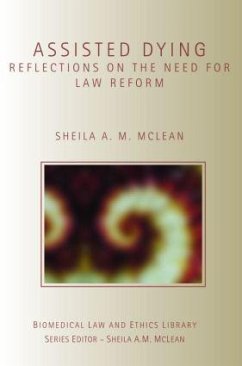
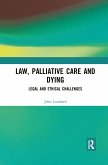
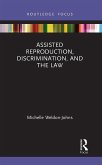
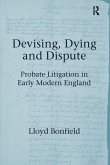
![The Life and Dying Declaration of Martin Richard Kehoe (as Written by Himself) [microform]: Who Suffered the Extreme Penalty of the Law, by Hanging at The Life and Dying Declaration of Martin Richard Kehoe (as Written by Himself) [microform]: Who Suffered the Extreme Penalty of the Law, by Hanging at](https://bilder.buecher.de/produkte/64/64367/64367516m.jpg)
